Blog
What’s Your Excuse? Top Reasons People Aren’t Flossing
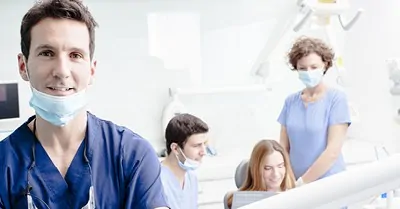
So, What’s the Deal?
There are several reasons people aren’t flossing on a regular basis. Check out a few of the more common ones below.
They Don’t See The Point.
Flossing reaches places in your mouth that a toothbrush can’t. While brushing your teeth is still absolutely important in maintaining proper oral health, if you skip flossing, all of the spaces in between teeth are left uncleaned. With so many people forgoing the floss on a regular basis, it’s no surprise that most cavities are found in these exact spots. What’s more, flossing your teeth helps remove bacteria from below the gum line which can help reduce the risk of gum disease. Gum disease is an incredibly serious problem that can actually affect the whole body by increasing the risk of stroke and heart attack.
They Aren’t Sure How to Floss Correctly.
Although it seems pretty straightforward, there is a right way and wrong way to floss. Flossing will be uncomfortable if you’re not sure how to do it right. But we promise, it’s easy. Just follow the American Dental Association’s steps to successful flossing:
- Use about 18 inches of floss. Wrap the ends around each middle finger.
- Tighten the floss and wiggle it in between the space between teeth using a back and forth motion.
- When it reaches the gum line, form the floss into a “U” around the shape of the tooth.
- Press gently and glide the floss in an up and down motion.
- Repeat between each tooth, unwrapping a new, clean section of floss.
They Have Pain or Bleeding.
There’s a common misconception that if flossing hurts, you should stop. The truth is quite the opposite. If flossing is a bit painful, it’s actually a sign of not flossing enough. Additionally, if gums bleed, it could be a sign of gum disease. Even if flossing isn’t so comfortable, it’s important to get into the habit of doing it regularly. Like exercising, it hurts less the more you do it.
If you’re having trouble flossing, or are experiencing pain or bleeding when you do, give my Douglasville dental office a call as soon as possible. We’ll work with you to find a flossing solution that works well for you and your health. And if we happen to find signs of a more serious problem, we’ll create an individualized plan to treat it.
Serving patients from Douglasville, Lithia Springs, and Villa Ricca.
Combat Bad Breath with These 4 Tips
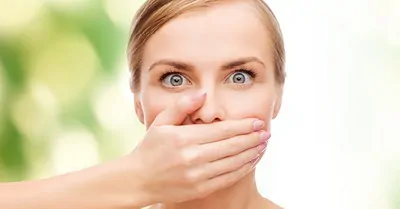
What Causes Bad Breath?
At my dental practice in Douglasville, we know bad breath can be caused by a lot of things, including some types of food and drink. That type of bad breath usually dissipates fairly quickly and isn’t something to worry about. However, when bad breath tends to linger day in and day out, you should give us a call.
Chronic bad breath (halitosis), meaning bad breath that does not go away after brushing, flossing, and rinsing, is typically an indicator of a bigger problem. Halitosis means there is a buildup of bacteria in the mouth. Those bacteria live and feed off tooth plaque, and when they feed, hydrogen sulfide is produced and gives off a malodorous stench. Bad breath is also a top sign of gum disease – a serious concern for your mouth and your body.
Gum disease may also affect your overall health. Untreated gum disease has been shown to cause loose teeth, receding gums, and sensitivity, as well as increase the risk of heart attack, stroke, and diabetic complications.
How to Get Rid of Bad Breath
If you suffer from bad breath, there are few tips you can try.
- Proper Oral Hygiene. Maintaining a proper oral hygiene routine of brushing twice a day and flossing at least once a day can work wonders to keep your mouth fresh and bacteria free. Make sure each time you brush it’s for about two minutes (hum “Happy Birthday” twice!) and that you reach each surface of each tooth. When flossing, it’s important to clean in between each tooth and under the gum line where bacteria love to hide.
- Tongue Scraping. Your tongue can hold a lot of bacteria in each of its tiny bumps and grooves, which is why it’s important to gently scrub it each time you brush. Some patients have difficulty cleaning their tongues with a traditional toothbrush because it makes them gag. If this is a problem for you, try using a tongue scraper instead.
- Water, Water, Water. Drinking plenty of water every day can also help keep your mouth stink free. Water keeps your mouth hydrated and rinses away bacteria. If you slack on your H₂O intake, your mouth could become dehydrated. When this happens, less saliva is produced and bacteria isn’t cleared away.
- Your Dentist. Bad breath shouldn’t be treated lightly. If you notice a lingering odor, call my Douglasville dental office as soon as possible. We’ll work with you to determine the cause and talk about the best treatment for you. We also won’t lecture you or make you feel embarrassed. We’re here to help keep your smile and your body healthy.
Accepting patients from Douglasville, Lithia Springs, and Villa Rica.
Osteoporosis Diagnosis from Your Dentist?

What is Osteoporosis?
Osteoporosis is a bone disorder that reduces bone density and causes them to weaken. While it typically affects women who are 50 or older, osteoporosis can happen to anyone. Currently, 10 million Americans suffer from osteoporosis and another 34 million are at risk for developing it. When your bone density weakens, your body becomes much more susceptible to serious, life-threatening bone breaks.
Signs
Some of the signs of osteoporosis may go unnoticed for a while, and many individuals don’t realize they have a problem until the osteoporosis causes a serious break or fracture. However, many signs of osteoporosis show up first in the mouth, since it’s the only part of your body that is x-rayed so regularly!
Some of the signs your dentist look for include:
- Bone loss around teeth and in the jaw
- Tooth loss — without the strong bone, teeth are more likely to fall out
- Gum disease
- Low bone density in x-rays
The earlier osteoporosis is caught, the earlier treatment can begin and the risk for serious injury decreases.
Prevention
- Get enough calcium and vitamin D through your diet or supplements
- Move it, move it! Exercise, particularly muscle-building exercises, can help
- Put down the cigarettes
- Limit alcohol
- Decrease caffeine intake
- Maintain regular dental appointments
Keeping up with regularly scheduled appointments at my Douglasville dental office is important not only for your oral health, but for your whole body’s health too. At every visit, we’ll monitor your mouth for any signs of osteoporosis. If we suspect osteoporosis, we’ll work with you to find the best treatment.
Serving patients from Douglasville, Lithia Springs, and Villa Rica.
Top 4 Dental Questions Answered
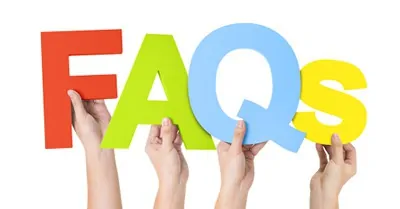
“Do I really need to see a dentist twice a year?”
The short answer is yes. Biannual visits are essential. However, we may encourage some patients to come in more often. If you’re at increased risk for gum disease or oral cancer, or if you have several treatments planned, visiting a dentist more than twice a year is normal. If your checkups are problem free, we’ll ask you to come back in about six months. Regular appointments are important for thorough cleaning and early detection. With early detection, you may avoid larger, more invasive, costly procedures in the future.
“Is flossing really necessary?”
Both brushing and flossing are crucial to a healthy mouth, yet about half of all Americans fail to floss on a regular basis. Without flossing, 35% of your tooth surfaces are not being cleaned. This allows bacteria to linger, food particles to fester, and decay to develop. Our best recommendation is to brush twice a day and floss once a day, at the minimum.
“I brush and floss, yet I still get cavities. What’s up?”
Brushing and flossing are only part of keeping decay and cavities away. If you have a diet that’s high in acidic foods or beverages, if you use tobacco, or if you are hard on your teeth, either by clenching, grinding, or crunching hard things, you’re automatically at increased risk for cavities. Acid eats away at enamel, and without enamel, teeth are left exposed to dangerous bacteria. Grinding and crunching alike may lead to tiny chips and cracks which are perfect places for bacteria to hide and create a cavity.
“What’s the purpose of dental x-rays?”
Dental x-rays allow us to see below the naturally visible surfaces of teeth. This helps identify potential problems early, before they become big problems. We can look at decay, bone infections, gum disease, and baby teeth patterns all by using x-rays.
If it’s been a while since you’ve seen a dentist, or if you ever have a question, just ask! We’ll be happy to help. Everyone at my Douglasville dental office isn’t only here to give you the care you need, we’re here to work with you to make sure all your questions are answered and you’re always comfortable.
Serving patients from Douglasville, Lithia Springs, and Villa Rica.
Is It Time to Say Goodbye to Your Toothbrush?
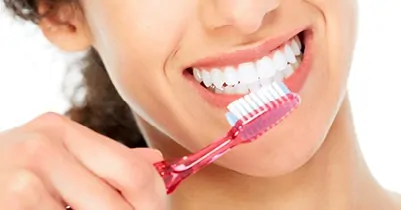
How Long Does a Toothbrush Last?
According to American Dental Association, a toothbrush is typically in good working order for about three-to-four months. Around this time, it’s common to notice signs that it’s time for your toothbrush to go.
Trash it or Keep it?
There are telltale signs it’s time to trash your toothbrush. If you’re coming up on that three-to-four month checkpoint, take some time to exam the bristles. Are they frayed? Discolored? Smushed? Jagged and pointing every which way? If your toothbrush is starting to resemble modern art, it has seen better days. It’s time to get a new one.
Sometimes your brush may appear to be in good working order, but you just battled a vicious cold. Again, toss it. Bacteria may linger around on the bristles. It’s best to start fresh following any sickness. But if you start to see the signs of a worn out toothbrush before the three or four month mark,you’re probably brushing too hard. Ease up a bit.
Why is This Important?
Toothbrushes are specifically designed to reach the nooks and crannies of your teeth gently and effectively. When the bristles get all cockeyed and frayed, the toothbrush isn’t doing it’s best job and leaves you at increased risk for dental problems.
How to Care for Your New One.
Once you’ve got a shiny new toothbrush, it’s important to care for it properly. Follow the tips below to keep your toothbrush in tip-top shape:
- Don’t share your toothbrush. Ever.
- Thoroughly rinse it after each use.
- Don’t store it in a container. Air drying is best.
In addition to taking proper care of your toothbrush, using it twice a day, and replacing it when necessary, it’s also crucial to maintain regular appointments at my Douglasville dental office. Professional cleanings help to remove debris and bacteria your regular toothbrush can’t reach. If you’re in need of a new dentist, or it’s been awhile since we saw you last, give us a call!
Accepting patients from Douglasville, Lithia Springs, and Villa Rica.
“Help! I have a Dental Emergency”
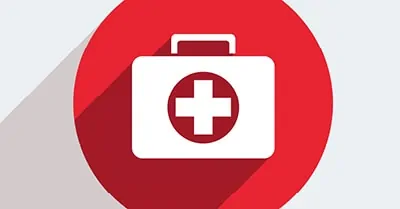
A Knocked Out Tooth
If this happens, whether on vacation or not, the first thing you should do is remain calm. Second, make sure there are no other serious injuries. Once you confirm all is well, you can start to work on saving that tooth — but only if the tooth is permanent. If a baby tooth is lost, make sure to schedule a visit as soon as possible upon your return to make sure no permanent teeth were damaged. If the lost tooth is permanent, and assuming both the roots and the crown were knocked out, try the following steps:
- Only touch the top of the tooth to limit damage to the roots.
- Gently rinse it with water.
- Attempt to insert it back into the socket.
- Control any bleeding with gauze.
- Call a dentist as soon as possible.
If you’re unable to get the tooth back into the socket, put the tooth in some milk or a cup of your spit — never store it in water! Then get to a dentist immediately.
Chips and Breaks
An unpopped popcorn kernel, a fall, or using teeth to open packaging can cause a tooth to chip or break. Again, don’t panic. Simply rinse your mouth with warm water to gently wash away any lingering particles. If you’re bleeding, gently apply gauze and use pressure until the bleeding stops.
Pesky Toothaches
Toothaches are usually the mouth’s way of saying, “Hey! Something’s not right in here!” And it’s important to listen. When toothaches happen, the best thing to do is schedule an appointment as soon as you can. But if you’re on vacation, try clove oil or rinsing with warm salt water (1 tsp. sea salt per 8 oz. of water). Cloves have natural anti-inflammatory and anesthetic properties, while salt water can limit swelling and help kill dangerous bacteria.
Emergencies of any kind are no fun, especially if they interrupt a vacation. If you do experience a dental emergency while away, give my dental office in Douglasville a call as soon as you return. We’ll want to ensure the problem is no longer active and if it is, we will work with you to treat it comfortably .
Accepting patients from Douglasville, Lithia Springs, and Villa Rica.
No Toothbrush? No Problem!
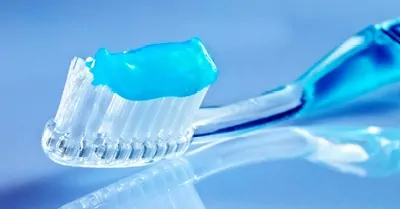
Toothpaste but no brush?
This is probably the best case scenario. When you have toothpaste, you just need to find something to put it on to act as a toothbrush. Some people use a finger, others just swish some around in their mouths. The best thing to do? Find a clean washcloth or paper towel, wrap it around your finger, wet it slightly, and apply the paste. The washcloth or paper towel will act as a toothbrush and is better than a finger alone since they both have texture that can mimic toothbrush bristles. Make sure whatever you choose isn’t coarse or it can damage tooth enamel.
No paste and no brush?
Again we turn to our trusty paper towel or washcloth. Simply wet your make-do brush of choice and wipe each tooth individually from top to bottom for your top teeth, and from bottom to top fro your lower teeth. Make sure to rinse your towel between each tooth to limit the amount of plague that can get transferred from tooth to tooth. When finished, rinse well to remove any loose particles.
Got gum?
As a last resort, sugarless gum (emphasis on the sugarless), a teeth-buffing snack, or both, can help. Chewing gum naturally causes you to produce more saliva. More saliva means more bacteria is rinsed away and doesn’t stick around to cause decay. Nibbling on a smile-happy snack like cheese, crunchy carrots, or crisp apples can serve as micro-scrubbers if a toothbrush is nowhere to be found.
Thirsty?
One of the most important things you can do not only when you find yourself toothbrush-less, but every day, is drink plenty of water. Water hydrates your mouth and is a safe way to rinse away smile-damaging particles that tend to stick around.
If you find yourself without a toothbrush, don’t panic. The tips above can get you through a night or two without one, just don’t make them permanent replacements for a real toothbrush. Get to the store to pick up a new one as soon as you can.
As always, we encourage visits to my dental office in Douglasville regularly to ensure a healthy smile and to check for any problems. If you’re heading out of town and want to get a checkup before you leave, just give us a call. We’ll be happy to help.
Welcoming patients from Douglasville, Lithia Springs, and Villa Rica.
To Brush, or Not to Brush at Work

When it comes to great oral health, one constant is brushing at least twice a day. However, while it’s common to do this at home in the comfort of your own bathroom, there is a huge benefit to storing a toothbrush and toothpaste at work to use after lunch.
After eating, even when all evidence of food is gone, there are still particles lurking in the mouth. If not scrubbed away, these particles contribute to decay and even gum disease. But if you brush following a meal, the chance for dental problems greatly decreases. Not only will following this routine help keep your mouth healthy, it can help keep your career intact too.
Healthy Mouth, Healthy Job
We aren’t saying that your healthy mouth will ensure job happiness or will give you immunity from a demotion, but we will confidently say your oral hygiene may directly affect the opinion of co-workers, bosses, or, if you’re looking for a job, a hiring manager.
According to a study of 1,000 people by the Academy of General Dentistry and Oral-B that asked respondents about oral health care habits at work, the majority did not brush after eating (a whopping 86%) but still said a healthy smile was important in the workplace.
Check This Out
- 40% said a smile was the first thing they noticed about a co-worker
- 32% claimed bad breath was the least attractive trait of fellow employees
- 96% believe a good smile is very or somewhat important to a person’s appearance
If you’re a bit uneasy about brushing in public, don’t be. The workplace is changing and it’s becoming increasingly common for employees to brush in the bathroom. Many bosses actually prefer this over meeting a client with awful breath or missing work time for dental problems. So go ahead, brush away!
Packing a toothbrush in your briefcase and transitioning into this routine of proper oral health care can keep your smile healthy for years to come. Pair that with regular visits to my dental office in Douglasville and you’re well on your way to a happy mouth and happy co-workers.
Accepting patients from Douglasville, Lithia Spring, and Villa Rica.
Taking Care of Your Tongue

A Little Tongue Background
Tongues allow us to chew, swallow, and talk. But they also can directly affect our overall oral health. Home to over 10,000 taste buds, the tongue is often the part of the mouth that’s exposed to the most bacteria and acid. Each tiny taste bud and all those other bumps and dips we can see and feel on the tongue’s surface make a great place for acid and bacteria to hide.
Why it Deserves Attention
Your tongue is in constant contact with your teeth. If your tongue isn’t clean and it’s teeming with bacteria, all of that bacteria is being transferred right onto your teeth. When this happens, the chance for decay greatly increases.
A clean tongue also means no debris obscuring your tastebuds. What’s this mean for you? More flavor and a better tasting meal!
Keeping your tongue clean can fight off bad breath bacteria that may be lurking around. While bad breath can be caused by a variety of things, cleaning your tongue is a great way to help keep your breath fresh. An important note about bad breath, if it’s chronic and doesn’t go away, you should mention it to your dentist immediately as it could be a sign of something serious.
How to Care for it
Every time you brush your teeth, take a few extra seconds to brush your tongue too. Simply stick out your tongue and gently scrub it with your toothbrush. If brushing your tongue is uncomfortable, it’s ok and quite common. Make sure to tell your dentist so you can try an alternative tongue cleaning solution with a tongue scraper. A tongue scraper gently removes bacteria from the tongue’s surface and is easier for those with a sensitive gag reflex to use.
At my Douglasville dental office, we’re all about getting and keeping our patients’ smiles healthy. And the tongue is just as important to that goal as brushing and flossing. So make sure you’re brushing at least twice a day with a soft-bristled toothbrush, flossing once a day, and, as importantly, keeping up with regular appointments with us.
Serving patients from Douglasville, Lithia Springs, and Villa Rica.
Suffering From Morning Sickness? See Your Dentist.

Morning sickness exposes your teeth to a large amount of stomach acid. That acid is one of the most dangerous things for your teeth. Acid is a leading culprit to enamel erosion and decay, not to mention more serious dental concerns. So when you’re experiencing morning sickness, and there is no way to keep it from happening, how can you limit the amount of acid in your mouth?
Try These Easy Tips!
- Wait to Brush. Brushing immediately after vomiting can lead to damage. Acid weakens the enamel and if you brush while the enamel is soft, you can cause scratches that bacteria can hide in. So wait at least an hour after getting sick to brush.
- Rinse with Water. While you’re waiting for the right time to brush, it’s a good idea to initially rinse your mouth out with water. Swishing water around in the mouth and spitting it out can remove a lot of acid.
- Keep Drinking Water. You’re already drinking a lot of water, so keep on doing it. The more water you drink, the less acid will stick around in your mouth.
- Scrape the Tongue. Don’t forget about your tongue. After vomiting, get a tongue scraper and gently run it down your tongue. You can successfully remove a lot of acid that would actually end up on your teeth.
If you’re pregnant and experiencing morning sickness, I encourage you to visit my Douglasville dental office as soon as you can. We want to make sure your teeth are not suffering from the amount of acid in mouth and if they are, we’ll work with you to help you keep your teeth healthy during your pregnancy and for years to come.
Serving patients from Douglasville, Lithia Springs, and Villa Rica.
